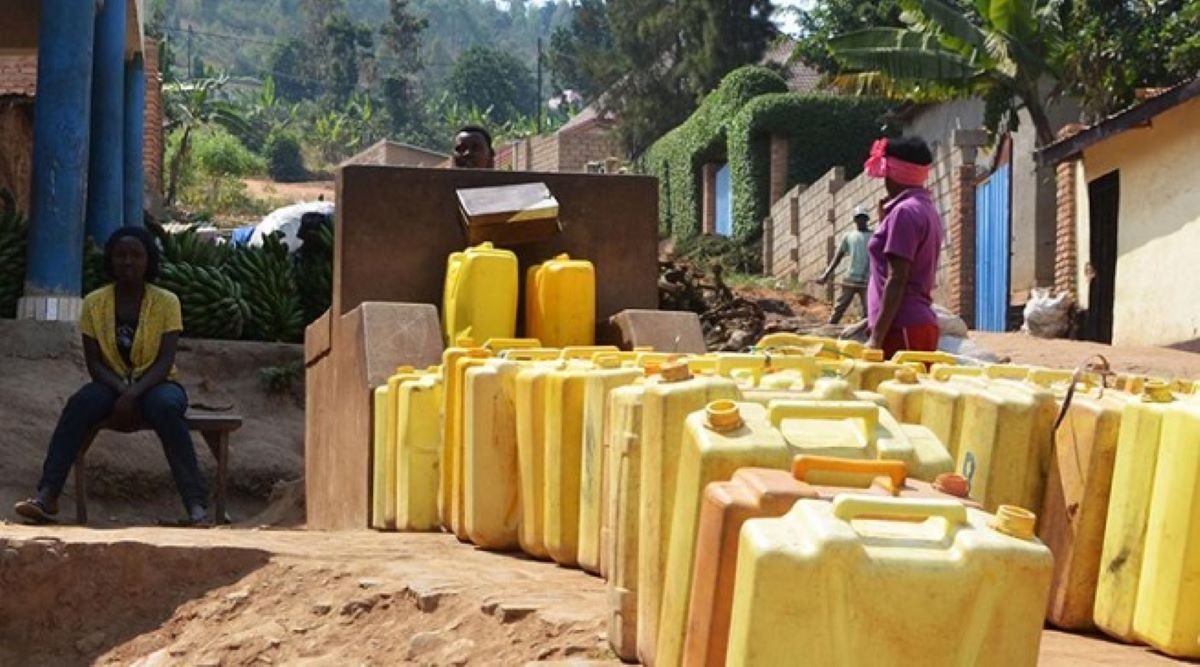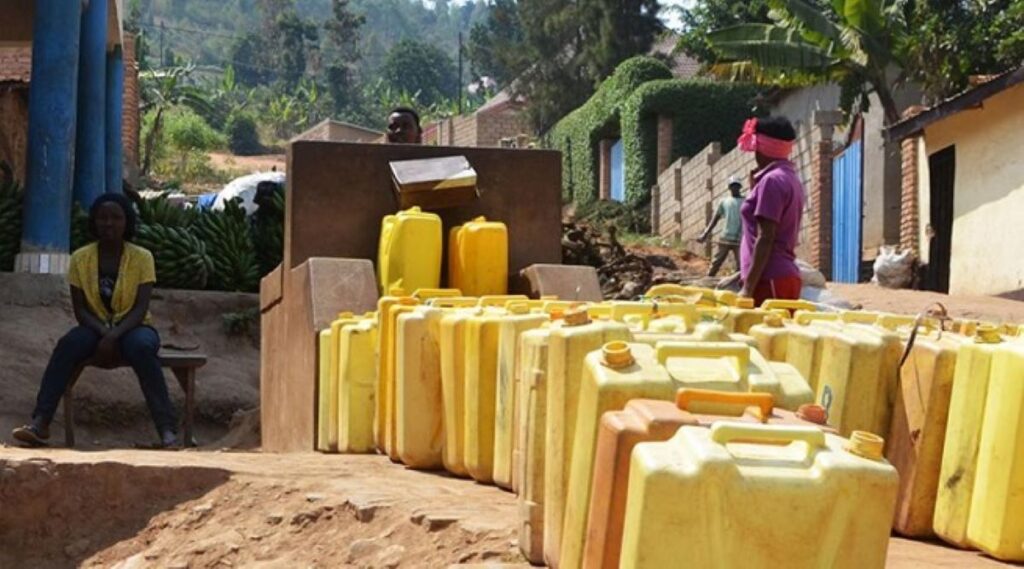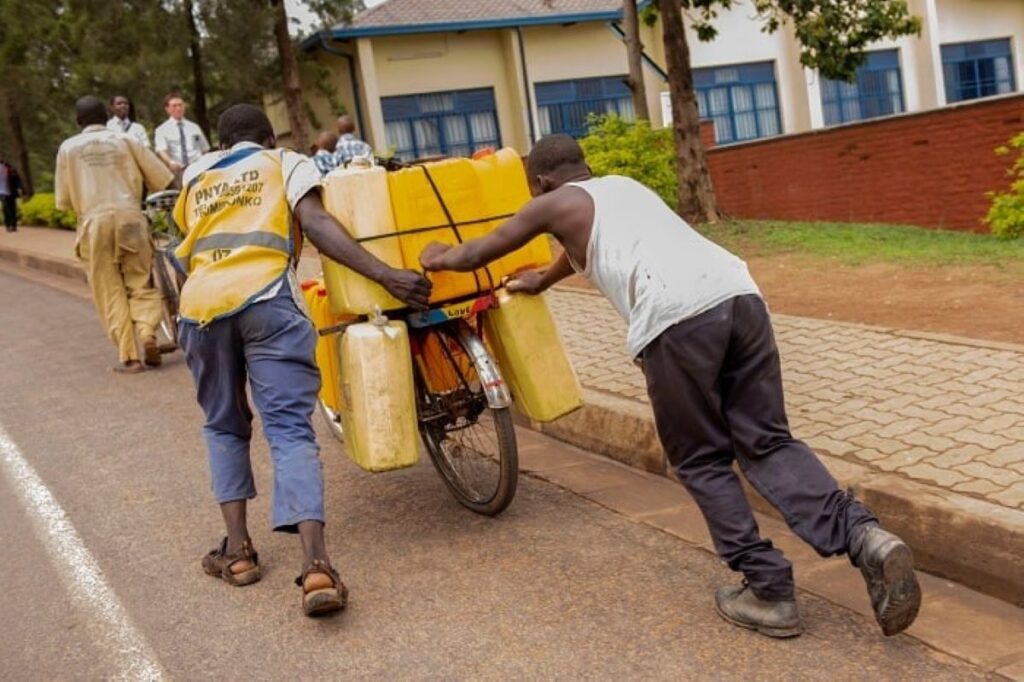Life
Feature Story: Building Climate Resilience into Rwandan Water and Sanitation Utilities, How a Multi-Dimensional Risk Assessment Tool is Helping Local Service Providers

Rwanda is particularly susceptible to climate change impacts due to changes in precipitation patterns, increased frequency of droughts, and extreme weather events. The challenges also represent a major risk to the survival of water and sanitation utilities essential to public health and sustainable development. Most of the infrastructure is public services utilities, which must be climate resilient due to these delivering critical functions. This story examines what actions water and sanitation providers in Rwanda can take to make themselves more resilient to climate change.
- Understanding Climate Risks
Understanding the specific climate risks that water and sanitation utilities in Rwanda are facing will be critical for building a more resilient sector. These include carrying out holistic assessments of climate risks to identify vulnerabilities in infrastructure, water sources, and service delivery. Eng Aime Muzoola the Chief Executive of Wasac (Water Sanitation and Corporation) talk about the activities of Wasac for the construction of the water infrastructure. He said “Provision of adequate water supply and sanitation infrastructure is a critical component to the promotion of safe public health, socioeconomic development and poverty reduction. In recognition of this important role, the Government of Rwanda is committed to achieving universal (100%) access to clean water, specifically accessed within 200 m in urban areas and 500 m in rural areas, and access to sanitation facilities to all by 2024 as per the National with Strategy for Transformation-1”
For example, the country is a land of mountains and can also have different patterns of rainfall leading to floods in some places while causing arid lots in others. ³Geo hazard Exceptional Cluster of Simultaneous Shallow Landslides in Rwanda: Context, Triggering Factors, and Potential Warnings Utilities can From there, utilities can use this climate data to model how those impacts may play out and develop strategies to minimize risks.
- Investment in infrastructure and modernization efforts
Resilient infrastructure must be a priority for utilities in Rwanda. Wasac said that in 2024 the number of people who need clean water will increase up to 100%. A few bullet points: Existing facilities should be bolstered to withstand intensifying bouts of bad weather, and newly built infrastructure must take climate resilience into account from its inception.
The specific design of Rwandan geographies also affects what these utilities should be delivering and thinking against localized solutions. Manpower in building small-scale water supply systems, autonomous from centralized infrastructure — a means to reduce dependence on fragile.
- Capacity Building and Training
Human capital is a critical component of resilience. Water and sanitation utilities must invest in capacity building and training for their staff to equip them with the skills necessary to address climate challenges. This includes training on climate risk assessment, emergency response planning, and the operation of resilient infrastructure.
In collaboration with the Japan International Corporation Agency (JICA), Wasac conducted a project of five years of Rural Water Supply System in Rwanda (RWASOM) Project. Before starting the project, there was training to enable the private sector operators with skills in the management of the water infrastructure.
- Data Collection and Monitoring
Robust data collection and monitoring systems are essential for understanding climate impacts and informing decision-making. Utilities should implement mechanisms to track water quality, usage patterns, and climate variables. This data can help identify emerging trends and inform timely interventions.
- Collaboration and Partnerships
Building climate resilience is a collective responsibility that requires collaboration among various stakeholders. Water and Sanitation Corporation in Rwanda was engaged with local governments and local people of different districts to build climate resilience. In collaboration with JICA NGOs, and the private sector foster partnerships aimed at enhancing resilience. Collaborative efforts can pool resources, share knowledge, and implement joint initiatives that benefit the entire community.
Policy and Regulatory Frameworks
Supportive policy and a regulatory framework are needed to allow for climate resilience. Utilities should support policies that accelerate climate adaptation, and the building of resilience in water and sanitation services; this could include encouraging regulations on the need for climate risk assessments in new infrastructure projects or the incentivizing of resilient technology investments. The Rwanda Environment Management Authority (REMA) made the regulatory policy for protecting the Kivu lake and how can be used for sanitation and to stop its deterioration. On his website, the REMA said “This decision monitors the main risks associated with the methane extraction (deteriorate the lake stability and its ecosystem) and to develop an institutional framework for the bilateral management of the methane resource. It also addresses the issues of climate change. Furthermore, it undertakes and coordinates research, investigation, and surveys for environmental management.”)
Utilities also need to begin engaging policymakers so that climate resilience can be integrated into the broader national development strategies, both at a local level. Utilities do this by making sure their goals align with the country’s adaptation plans and therefore get support and funding for their activities.
In Conclusion,in a nutshell, climate resilience is not a destination, but rather a journey that demands commitment to commensurate investments and partnerships between the various players in the water and sanitation utilities of Rwanda. There is a need to make these utilities aware of the risk that climate change presents, invest in resilient infrastructure, adopt integrated management, build capacity, and foster partnerships in their quest to be more resilient to climate change impacts. After all, this will be a resilient water and sanitation sector, playing an important role in protecting public health, ensuring the road to sustainable development, and allowing communities to prosper in an increasingly uncertain climate.
Alphonse Munyankindi


